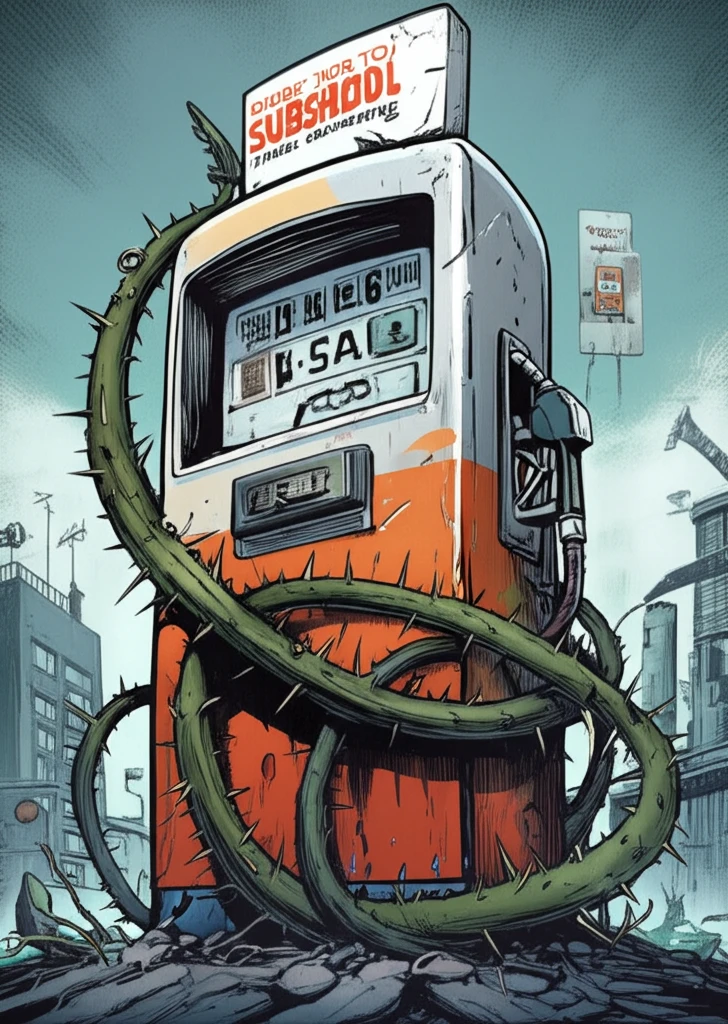
Fuel Subsidy: Is Removal Really the Answer for Economic Growth?
"Examining the impact of fuel subsidy policies in Nigeria and whether their removal can drive economic growth and stability."
Governments worldwide constantly make critical decisions aimed at serving their citizens. However, these decisions are often complicated by economic conditions, legal frameworks, political climates, and socio-cultural shifts. Public problems are inherently complex and their consequences are sometimes unpredictable. This complexity often leads to conflict between governments and the public, particularly concerning policies with direct economic impact.
One such contentious issue is fuel subsidies. These subsidies, designed to keep fuel prices artificially low, have sparked considerable debate in Nigeria. While intended to ease the financial burden on the average citizen, the policy's effectiveness and long-term consequences are hotly debated. The core question is whether the removal of these subsidies will genuinely pave the way for sustainable economic growth, or simply add to the economic strain on the populace.
This article delves into the intricacies surrounding fuel subsidy removal in Nigeria. It explores the history, the arguments for and against the policy, and the potential impact on the Nigerian people. It seeks to provide a balanced perspective, examining whether this controversial decision can truly unlock economic growth or if alternative solutions should be considered.
A History of Fuel Subsidies in Nigeria: A Bumpy Road

Fuel subsidies in Nigeria have a long and controversial history, dating back to 1978. Successive governments have implemented and removed subsidies, leading to public outcry and economic disruption. The core aim of these subsidies was to make petroleum products affordable for the average Nigerian, but the reality has often been marred by corruption and inefficiency.
- 1976: General Murtala Mohammed - 9k
- 1978: Gen. Olusegun Obasanjo (military ruler) - 15.37k (Subsidy Withdrawn: 6.37k)
- 1982: Alhaji Shehu Shagari - 20k (Subsidy Withdrawn: 4.63k)
- 1986: Gen. Ibrahim Babangida - 39.50k (Subsidy Withdrawn: 19.50k)
- 1988: Gen. Ibrahim Babangida - 42k (Subsidy Withdrawn: 2.50k)
- 1989: Gen. Ibrahim Babangida - 60k (Subsidy Withdrawn: 18k)
- 1991: Gen. Ibrahim Babangida - 70k (Subsidy Withdrawn: 10k)
- 1993: Gen. Ibrahim Babangida - N3.25k (Subsidy Withdrawn: N2.55)
- 1994: Gen. Sani Abacha - N11.00 (Subsidy Withdrawn: N7.75)
- 1999: Abdulsalami Abubakar - N20.00 (Subsidy Withdrawn: N9.00)
- 2000: Olusegun Obasanjo (civilian president) - N22.00 (Subsidy Withdrawn: N2.00)
- 2002: Olusegun Obasanjo - N26.00 (Subsidy Withdrawn: N4.00)
- 2003: Olusegun Obasanjo - N40.00 (Subsidy Withdrawn: N14.00)
- 2004: Olusegun Obasanjo - N45.00 (Subsidy Withdrawn: N5.00)
- 2007: Olusegun Obasanjo - N70.00 (Subsidy Withdrawn: N25.00)
- 2007: Alhaji Umaru Shehu Yardua - N65.00 (Subsidy Withdrawn: (N5.00))
- 2012: Dr. Goodluck Jonathan - N97.00 (Subsidy Withdrawn: N32.00)
Moving Forward: A Path to Sustainable Solutions
The question of fuel subsidy removal in Nigeria is multifaceted. While the government views it as a necessary step towards economic reform and attracting investment, the public remains wary of its potential impact on their daily lives. Finding a balanced solution requires careful consideration of alternative approaches, such as phased implementation, targeted support for vulnerable populations, and robust measures to combat corruption. Effective communication, transparency, and building trust between the government and its citizens are paramount for any successful policy implementation. Ultimately, Nigeria's economic future hinges on making informed and equitable decisions that prioritize the well-being of all its citizens.
